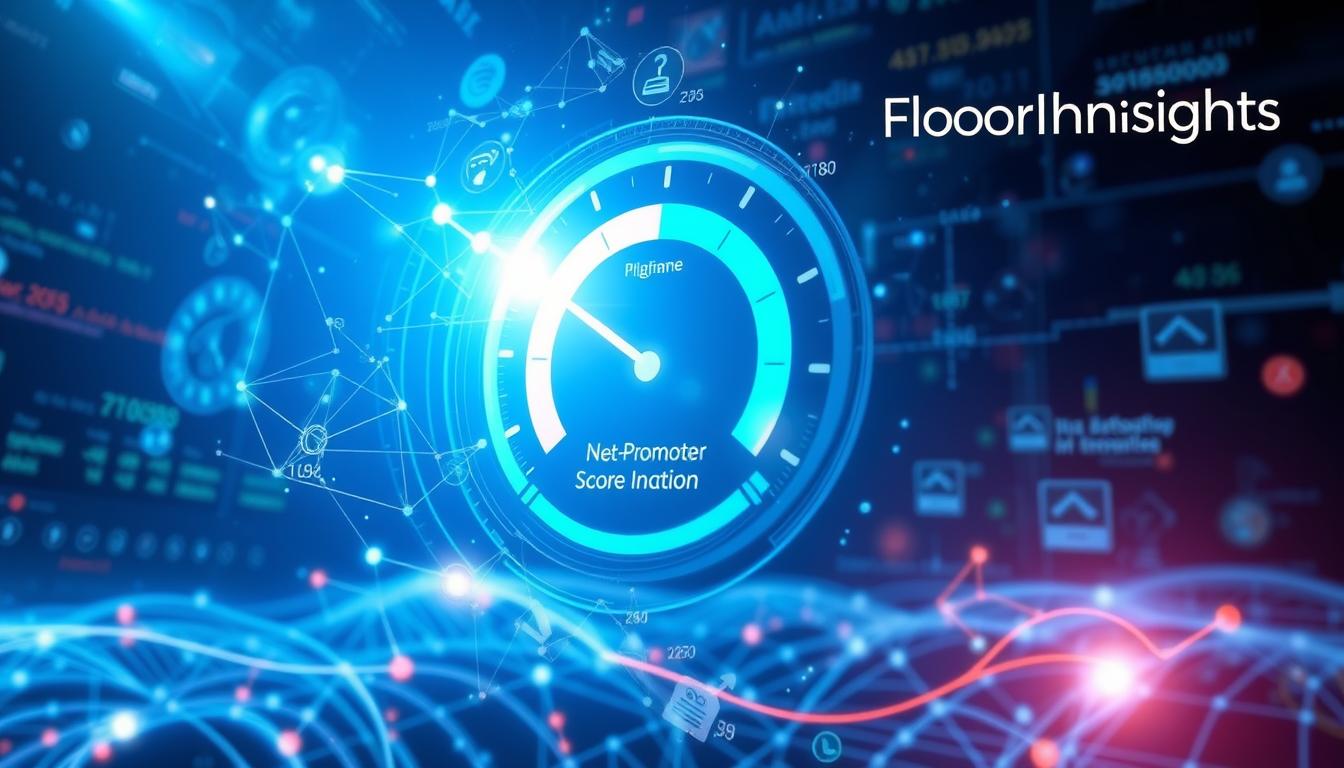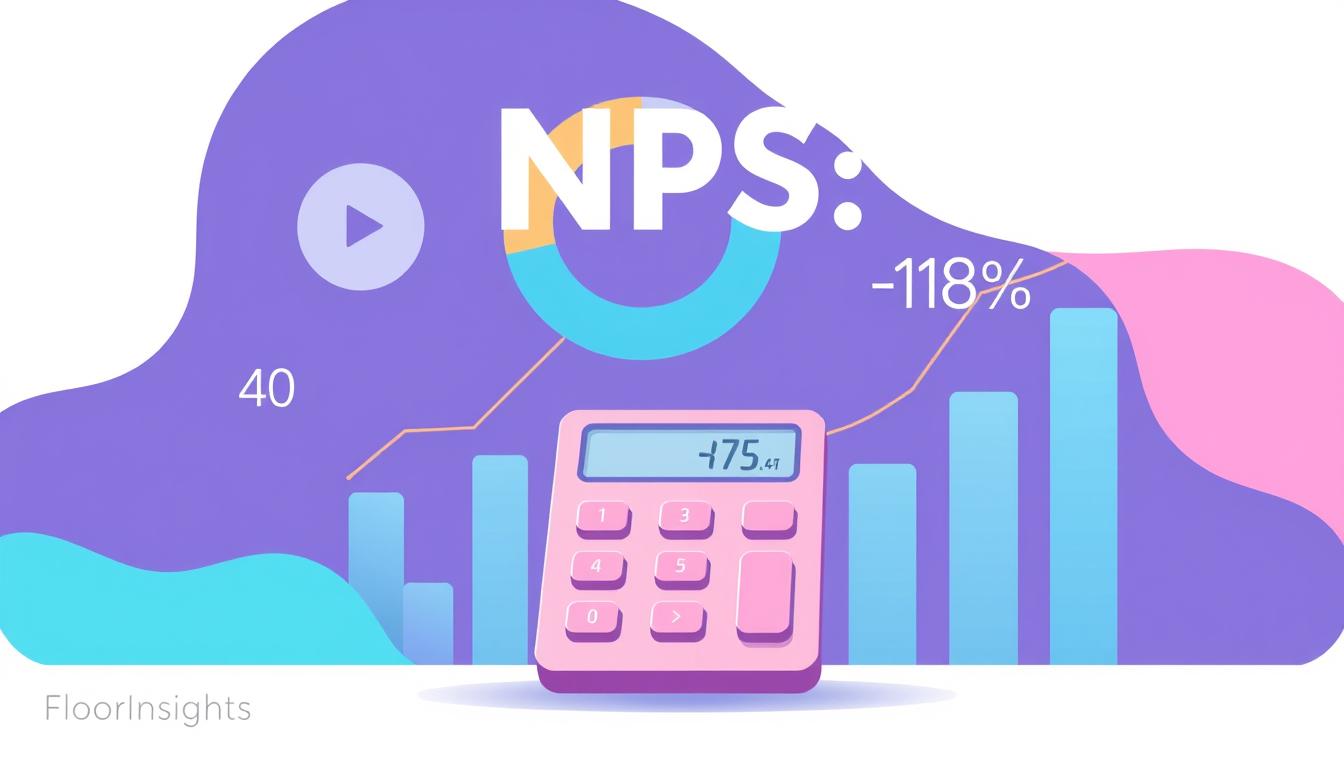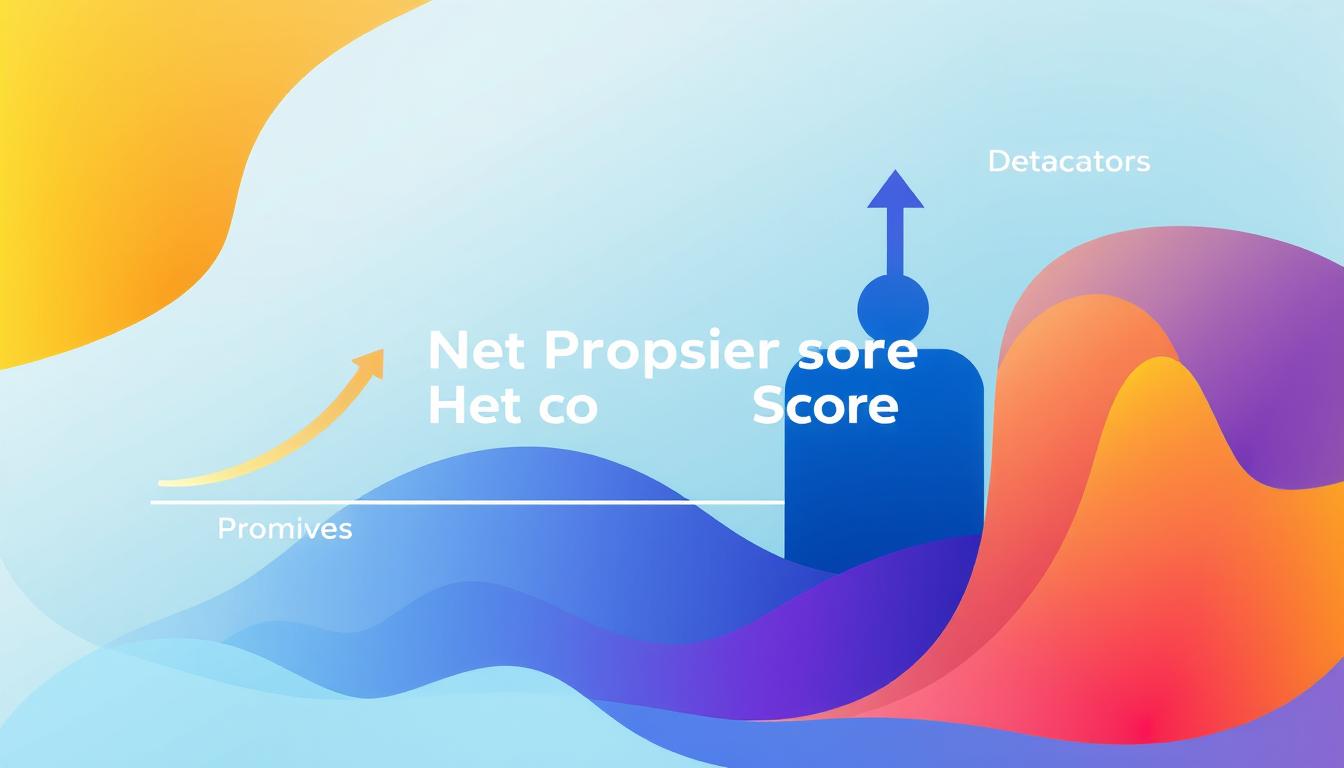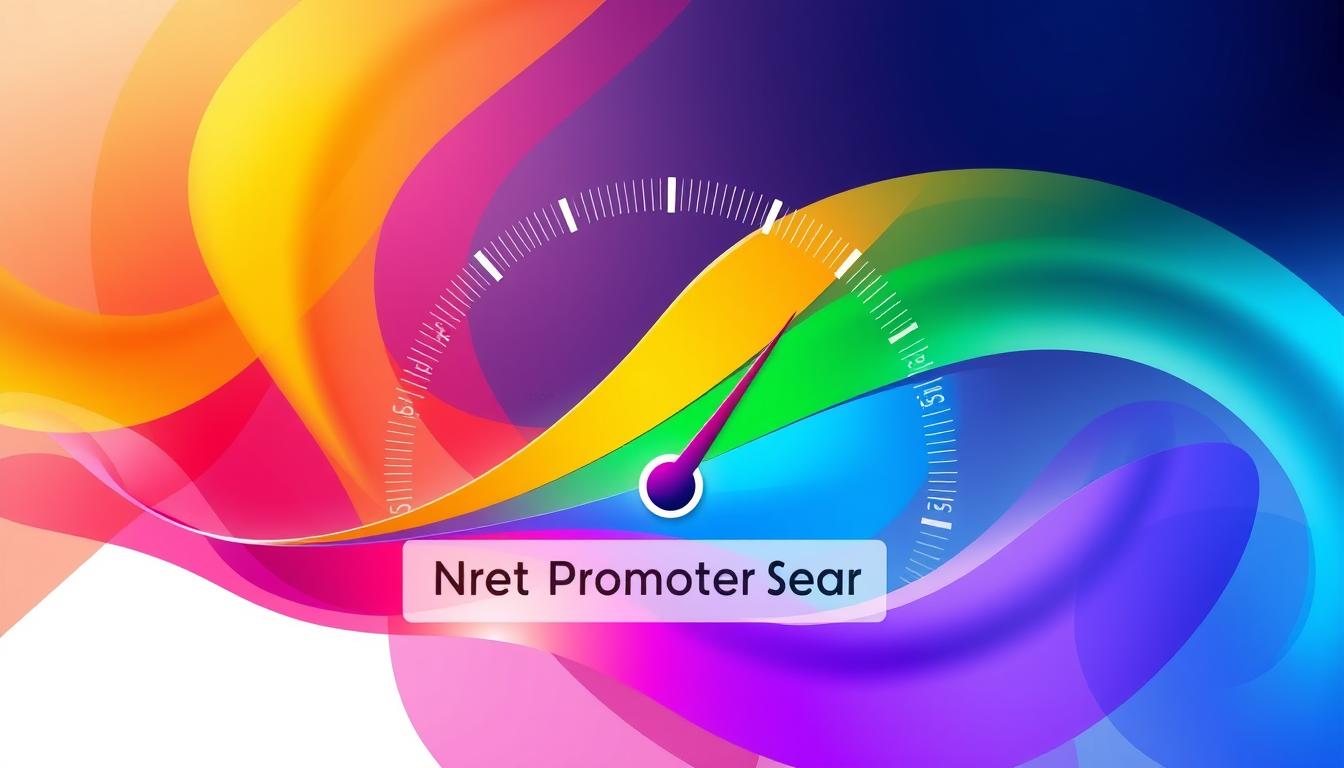In today’s competitive landscape, we recognize that AI-driven personalization offers a transformative approach to enhance the Net Promoter Score (NPS). By leveraging advanced data analytics and personalization strategies, we can significantly improve the customer experience, fostering greater customer loyalty. Studies indicate that businesses employing AI personalization can boost their NPS by as much as 20%. As we delve into this article, we will explore how integrating these personalization techniques can elevate customer engagement and overall satisfaction.
Key Takeaways
- AI-driven personalization significantly enhances customer experience.
- An improved Net Promoter Score leads to increased customer loyalty.
- Businesses can enhance NPS by up to 20% through personalization strategies.
- Integrating personalization techniques transforms customer engagement.
- Data analytics plays a crucial role in developing effective personalization strategies.
Understanding AI-Driven Personalization
AI-driven personalization stands as a revolutionary approach within the marketing ecosystem. By harnessing sophisticated technologies such as machine learning and predictive analytics, we can analyze customer data to grasp individual preferences effectively. This process involves a deep dive into behavior analysis, allowing us to understand how customers interact with our brands.
The objective is clear: to engage with our audience on a more personal level through targeted marketing strategies. Companies can tailor their campaigns, ensuring that messages resonate with consumer desires. Through the relentless pursuit of understanding customer behavior, we equip ourselves to meet their expectations with precision and relevancy.
With numerous success stories backing this approach, many brands have seen significant engagement improvements by adopting AI-driven personalization. For instance, companies like Netflix and Amazon utilize customer data intricately to recommend products and content that align closely with the consumers’ past behavior. These examples emphasize the immense potential embedded within effective AI personalization strategies.
| Company | Strategy | Impact |
|---|---|---|
| Netflix | Recommendation Algorithm | Increased viewer retention by 75% |
| Amazon | Personalized Email Marketing | Boosted sales by 29% |
| Spotify | Personalized Playlists | Enhanced user engagement significantly |
As we delve deeper, embracing AI-driven personalization is no longer optional; it’s a necessary evolution. Businesses that prioritize this strategy stand to gain a competitive edge in fostering customer loyalty and satisfaction.
The Importance of Net Promoter Score in Customer Engagement
The Net Promoter Score offers vital insights into customer loyalty and serves as a comprehensive measure of customer engagement within our businesses. As an established metric, NPS significance lies not only in its numerical value but also in what it reveals about customer sentiment.
Calculating the Net Promoter Score involves surveying customers with a straightforward question: “On a scale from 0 to 10, how likely are you to recommend our product or service to others?” Based on their ratings, customers are categorized into three groups: promoters, passives, and detractors. This segmentation helps us understand the overarching landscape of our customer base.
Monitoring NPS closely proves indispensable for any business aiming for growth. Research consistently highlights a correlation between a high Net Promoter Score and increased retention rates. Businesses with a strong customer loyalty foundation tend to witness enhanced revenue growth and a more robust market presence. By harnessing this powerful metric, we can derive actionable insights that guide our strategies for fostering customer engagement.
To maintain strong customer loyalty, we should regularly assess and analyze our Net Promoter Score. This ongoing evaluation not only informs us of current customer sentiments but also aids in identifying areas for improvement, ensuring we remain in tune with our customers’ needs and preferences.
How Personalization Impacts the Net Promoter Score
Personalization impacts customer experience in profound ways. We understand that tailoring interactions improves customer satisfaction, making customers feel valued and understood. The emotional connection created through personalization significantly influences customer perceptions of a brand. When customers receive recommendations based on their preferences and history, they are more likely to respond positively.
The NPS influence becomes evident as we analyze the correlation between personalized experiences and customer loyalty. A study revealed that brands employing effective personalization strategies can experience a dramatic increase in NPS ratings. Customers who feel an emotional bond with a brand often share their positive experiences, becoming brand advocates.
Let’s consider the following table which illustrates the significance of personalization in boosting NPS:
| Personalization Level | Customer Satisfaction Score | NPS Rating |
|---|---|---|
| Low | 65% | 10% |
| Moderate | 80% | 40% |
| High | 95% | 75% |
As shown, higher levels of personalization correlate with increased customer satisfaction scores and NPS ratings. Investing in personalized customer experiences not only enhances emotional connections but also leads to favorable NPS outcomes. By recognizing the personalization impact, we can focus our efforts on crafting experiences that resonate deeply with our audience.
Leveraging Data Analytics for Enhanced Personalization
In today’s competitive landscape, leveraging data analytics plays a crucial role in developing a successful personalization strategy. By analyzing customer interactions, we can derive valuable customer insights that enable us to understand preferences and behaviors better. This foundation empowers businesses to create tailored experiences, ultimately driving improved customer satisfaction.
Organizations benefit from employing various data analytics tools and technologies that make data-driven decisions easier. These resources help in visualizing patterns and trends within vast amounts of data, allowing teams to make informed choices regarding their personalization strategies. We can develop targeted marketing campaigns based on these insights, ensuring that we reach the right audience with relevant content.
Moreover, the integration of customer insights derived from surveys, social media interactions, and transaction histories allows us to identify pain points in the customer journey. This knowledge can be instrumental in refining our personalization strategy. By aligning our offerings with individual preferences, we foster stronger connections with customers and enhance their overall experiences.
In summary, employing data analytics not only enables us to make better decisions but also enhances our ability to engage and retain customers. Implementing advanced analytics into our personalization processes can lead to substantial improvements in customer loyalty and satisfaction. By continuously refining our approach based on data-driven insights, we ensure a more effective and impactful relationship with our customers.
Implementing Effective AI Personalization Strategies
In our efforts to enhance customer engagement and improve Net Promoter Scores (NPS), effective implementation of AI personalization strategies stands out as a paramount approach. By following a structured implementation process, businesses can maximize the impact of these strategies across various customer touchpoints.
Key tactics in AI personalization include:
- Segmentation: Understanding our customers through data-driven segmentation allows for tailored interactions. By analyzing demographics, preferences, and behaviors, we can create targeted campaigns that resonate with specific customer groups.
- Dynamic Content Creation: Utilizing AI tools to generate dynamic content ensures that our messaging remains relevant. For instance, personalized emails or website experiences can adapt based on individual user behaviors and preferences.
- Multi-Channel Personalization: We must implement personalization strategies that span across various channels. Engaging customers through social media, email, and web platforms creates a cohesive experience, reinforcing our brand and improving customer satisfaction.
Industry leaders, such as Amazon and Netflix, exemplify successful adoption of AI personalization strategies. Their approach not only revolutionizes customer engagement tactics but also plays a vital role in boosting their NPS ratings. By analyzing user interactions and preferences, these companies can proactively offer recommendations that enhance the customer’s journey.

Collecting and Analyzing NPS Feedback
In today’s competitive landscape, collecting relevant NPS feedback through effective net promoter surveys is crucial for understanding customer sentiments. Such surveys enable us to gauge how our customers perceive our brand, products, and services. By carefully designing these surveys, we can extract invaluable insights that guide our strategies.
The Role of Net Promoter Surveys
Net promoter surveys serve as essential tools for measuring customer loyalty. These surveys typically consist of a single question, asking customers how likely they are to recommend our service to others on a scale from 0 to 10. Analyzing the responses categorizes customers into three distinct groups:
- Promoters (scores 9-10): Loyal customers who are likely to recommend our brand.
- Passives (scores 7-8): Satisfied but unenthusiastic customers.
- Detractors (scores 0-6): Unhappy customers who may share negative experiences.
This categorization helps us understand customer sentiment and areas that require improvement, directly influencing our customer satisfaction measurement efforts.
Understanding Customer Satisfaction Measurements
Understanding the nuances behind customer satisfaction measurements is essential for transforming NPS feedback into actionable insights. We can leverage various metrics alongside the net promoter survey to enhance our understanding of customer experiences:
| Measurement Tool | Purpose |
|---|---|
| NPS | Measures customer loyalty and likelihood to recommend. |
| CSAT (Customer Satisfaction) | Assesses customer satisfaction with a specific interaction or experience. |
| CES (Customer Effort Score) | Evaluates how easy it was for customers to interact with our service. |
By analyzing the interplay between these various metrics, we can fine-tune our personalization strategies to better align with customer expectations. By emphasizing customer-centricity, we can foster lasting relationships built on trust and satisfaction.
Creating a Tailored Customer Experience
In today’s competitive landscape, the essence of a tailored customer experience is crucial. We recognize that crafting such experiences requires an understanding of each customer’s unique preferences and behaviors. Personalized interactions throughout the entire customer journey establish connections that promote loyalty and satisfaction.
From the initial contact point to post-purchase follow-ups, every moment presents an opportunity to engage customers meaningfully. Emphasizing personalized interactions drives home the significance of knowing our customers’ needs. This knowledge allows us to curate experiences that resonate deeply with them.
Implementing strategies that enhance these interactions not only fulfills customer expectations but also creates lasting memories. A focused approach to developing a tailored customer experience can substantially enhance customer satisfaction, positively influencing our Net Promoter Score (NPS).
| Customer Journey Stage | Personalized Interaction | Impact on Customer Satisfaction |
|---|---|---|
| Awareness | Targeted advertising based on browsing habits | Increased relevance leads to higher engagement |
| Consideration | Customized product recommendations | Enhances perception of brand understanding |
| Purchase | Seamless checkout process tailored to preferences | Reduces friction, improving conversion rates |
| Post-Purchase | Follow-up communications with personalized offers | Increases chances of repeat business |
In summary, focusing on a tailored customer experience through personalized interactions transforms the customer journey into a satisfying and memorable adventure. This commitment not only cultivates loyalty but also positions our brand for growth in the ever-evolving market landscape.
Integrating Personalization with Customer Satisfaction Surveys
Integrating personalization with customer satisfaction surveys creates a vital connection between feedback and actionable insights. Through the careful analysis of data collected from customer satisfaction surveys, we can enhance our understanding of customer needs and preferences. This approach allows us to tailor our services precisely to their expectations.
Insights from CSAT Surveys
CSAT surveys provide immediate feedback regarding customer experiences. When we analyze this feedback, we gain insights that inform our personalization strategies. By identifying specific areas of customer satisfaction or dissatisfaction, we can focus on improving our offerings. For instance, an airline may utilize CSAT surveys to determine passenger satisfaction with in-flight services, leading to targeted improvements that enhance overall customer experiences.
Using Guest Satisfaction Surveys for Improvement
Guest satisfaction surveys are essential tools for understanding how well we meet customer expectations in the hospitality industry. These surveys highlight which aspects of a guest’s stay need enhancement. If a hotel gathers data indicating low satisfaction scores related to room cleanliness, this feedback integration prompts a focused approach to address these concerns. Consequently, personalized services can then be developed to exceed guest expectations, contributing to increased loyalty and positive word-of-mouth.
Measuring Success: From NPS to Customer Loyalty
Measuring success is essential in determining the effectiveness of our AI-driven personalization initiatives. One key metric that we should focus on is the Net Promoter Score (NPS). This tool serves as a reliable indicator of customer loyalty and satisfaction, enabling us to analyze how well our efforts resonate with our audience.
A strong NPS correlates with loyal customers who advocate for our brand, potentially leading to substantial business growth. By tracking NPS over time, we can gather insights that inform our strategies and illustrate how effective personalization enhances customer experiences. This process ultimately translates into reliable metrics that show a direct relationship between improved NPS and long-term customer loyalty.
- NPS Insights: Regularly gathering NPS feedback allows us to identify trends and areas for enhancement.
- Linking Metrics: Observing the correlation between NPS increases and customer retention rates offers valuable insights into customer loyalty.
- Driving Business Growth: Higher NPS scores not only reflect satisfaction but can also lead to an uptick in referrals and repeat business.
By employing robust frameworks to analyze these metrics, we can effectively gauge the impact of AI-driven personalization and its role in fostering customer loyalty, ultimately driving our business growth strategy forward.
Overcoming Challenges in AI-Driven Personalization
As we explore the realm of AI-driven personalization, we recognize that it comes with its own set of challenges. Among these, issues related to data privacy stand out prominently. Businesses must tread carefully to balance the enhancement of customer experiences with the safeguarding of sensitive information.
Addressing Data Privacy Concerns
In today’s digital landscape, data privacy is a significant concern for both businesses and customers. We face the challenges of personalization by ensuring compliance with stringent regulations such as GDPR and CCPA. These laws not only impose requirements on data handling but also play a crucial role in cultivating customer trust.
Building and maintaining this trust requires transparency in how customer data is collected, used, and protected. Implementing strategies that address these concerns can help us mitigate risks and foster lasting relationships with our audience. Here are some strategies we can leverage:
- Engage customers with clear communication about data usage.
- Implement robust security measures to protect customer information.
- Conduct regular audits to ensure compliance with data protection laws.
- Offer customers control over their personal data, allowing them to opt-in or out as they choose.
Furthermore, it is beneficial to integrate privacy considerations into our personalization initiatives. This integration can significantly enhance customer trust while allowing us to navigate the intricate landscape of compliance effectively.
| Challenge | Strategy | Expected Outcome |
|---|---|---|
| Data Privacy Regulations | Stay updated on GDPR, CCPA compliance | Reduced risk of legal implications |
| Customer Trust | Transparent data usage policies | Enhanced customer loyalty and engagement |
| Potential Data Breaches | Implement advanced security protocols | Minimized risk of data loss |
| Lack of Customer Awareness | Educate customers on data practices | Greater trust and willingness to share data |
Conclusion
As we conclude our discussion on AI-driven personalization and its impact on NPS, it is clear that the integration of advanced technologies in customer engagement strategies is essential for fostering strong customer relationships. We have examined how such personalization not only enhances the Net Promoter Score but also paves the way for sustainable business growth. By tailoring experiences based on customer feedback and behavior, we can significantly boost loyalty and satisfaction among our clientele.
It is imperative for businesses to adopt these AI-driven personalization strategies. By doing so, we can transform customer interactions and address their unique needs, ultimately contributing to a positive perception of our brands. Through the proactive use of data analytics, we can become more attuned to our customers’ preferences and desires, thereby facilitating a more engaging and effective customer journey.
For those interested in delving deeper into the concepts we’ve explored, we encourage further reading on the application of AI in enhancing customer experiences and the methodologies for improving NPS. Embracing these powerful tools not only strengthens our customer relationships but also positions our enterprises for long-term success in a competitive market.
FAQ
What is a Net Promoter Survey?
A Net Promoter Survey is a tool used by businesses to measure customer loyalty and satisfaction. It typically asks customers how likely they are to recommend a product or service on a scale of 0 to 10, helping organizations understand their customer relationships better.
How does AI-driven personalization enhance the NPS?
AI-driven personalization can enhance the Net Promoter Score by creating customized experiences that resonate with individual customer preferences. By leveraging data analytics to understand customer behavior, businesses can foster stronger emotional connections, increasing the likelihood of positive recommendations.
What are CSAT surveys and how do they relate to customer satisfaction measurement?
Customer Satisfaction (CSAT) surveys are tools used to gauge how satisfied customers are with a product or service. They typically feature direct questions about the customer’s experience and can be valuable for identifying areas for improvement in the overall customer journey.
What is the Customer Effort Score (CES) and how is it measured?
The Customer Effort Score (CES) measures how easy it was for a customer to interact with a business. It is often assessed through a simple question asking customers to rate their effort on a scale, with lower scores indicating a more effortless experience.
How can businesses effectively implement AI personalization strategies?
Businesses can implement AI personalization strategies by first gathering and analyzing customer data to understand preferences. They can then utilize segmentation, dynamic content creation, and tailored messaging across various customer touchpoints to create a more engaging experience.
Why is monitoring Net Promoter Score important for businesses?
Monitoring NPS is crucial because it provides insights into customer loyalty and predicts future growth. A high NPS often correlates with stronger customer retention rates and increased revenue, making it an essential metric for business success.
What role do guest satisfaction surveys play in enhancing customer experience?
Guest satisfaction surveys allow businesses to gather feedback on customer experiences directly. Analyzing this feedback can help organizations identify strengths and weaknesses in their services, contributing to improved personalization and overall customer satisfaction.
How can businesses overcome data privacy concerns in AI-driven personalization?
To overcome data privacy concerns, businesses should prioritize compliance with regulations such as GDPR and CCPA. This includes being transparent about data collection practices and ensuring customers understand how their data is used, which can help build trust.
How does personalization impact customer loyalty and NPS?
Personalization positively impacts customer loyalty by creating relevant and meaningful interactions. Customers who feel understood and valued are more likely to recommend the brand to others, thereby improving the Net Promoter Score.
Related Posts
- NPS as a Tool for Proactive Customer Support
- Using NPS Data to Build Stronger Customer Relationships – NPS in Customer Relationship Management
- The Importance of Closing the Loop with Detractors in NPS – NPS and Customer Feedback Loops
- The Importance of NPS in Post-Crisis Recovery Plans – NPS in Crisis Management
- Reporting NPS to Your Board: What to Include – NPS and Leadership
- The Role of NPS in Personalizing Product Recommendations – NPS and Personalization
- Using NPS to Guide Innovation in the Financial Services Sector – NPS and Financial Services
- How to Use NPS to Identify Pain Points in Telecom Services – NPS in Telecommunications






